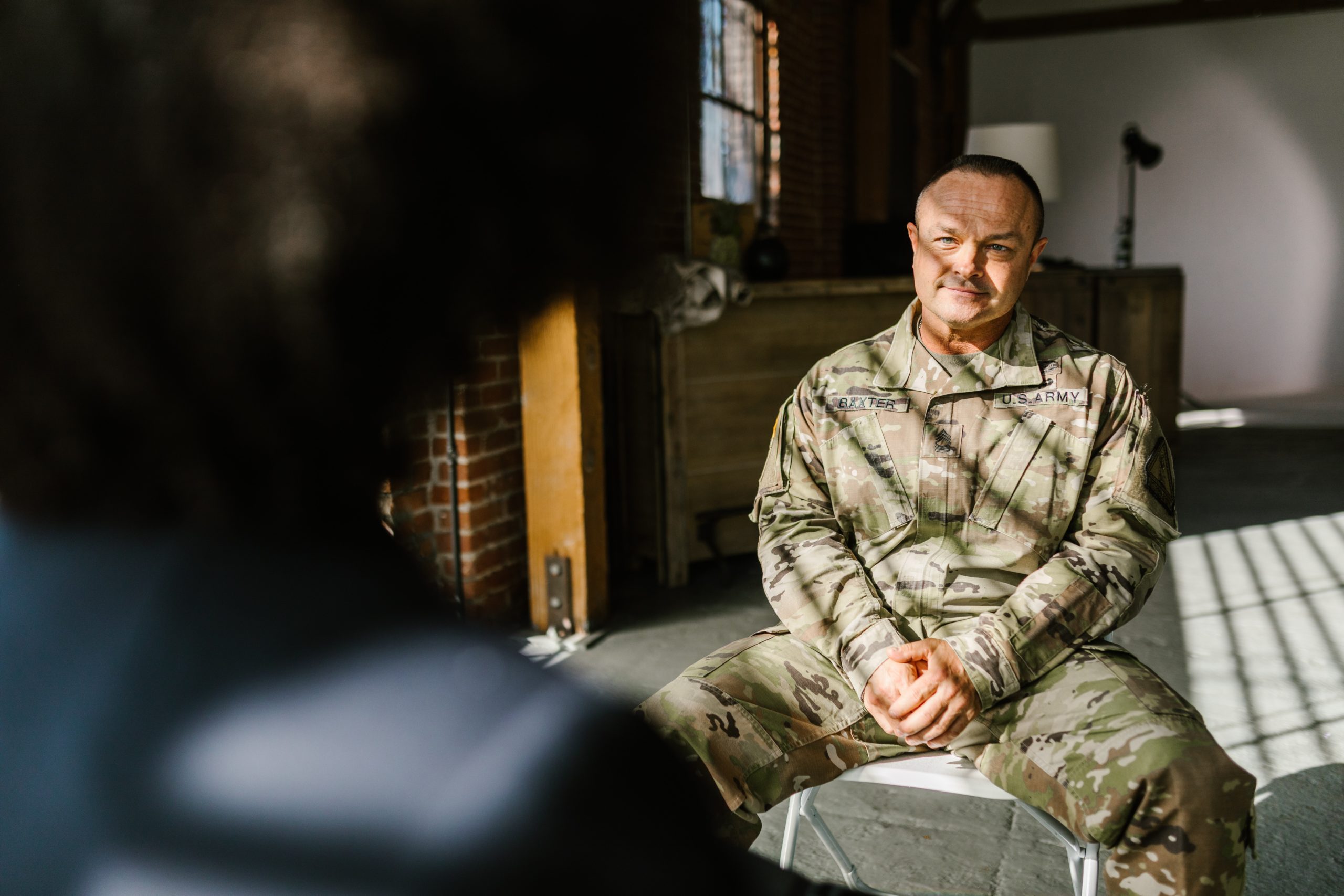Prolonged Exposure Therapy
What is PE?
Prolonged Exposure therapy is a form of cognitive-behavioral therapy (CBT) that helps people face their fears. In individuals who struggle with traumatic events, PE helps slowly introduce them to their traumatic experiences and work through them.
Prolonged exposure therapy can be customized to fit an individual’s needs and traumas. People’s initial reaction to trauma is to avoid anything that reminds them of their experience, but this does not help with PTSD.
Instead, with the use of prolonged exposure, individuals can face their trauma head-on and reduce their symptoms of PTSD.
PE’s use in treating PTSD
Prolonged Exposure therapy is used in treating PTSD after a therapeutic relationship is established. The patient needs to trust the therapist in order for the PE to effectively reduce the veteran’s PTSD.
First, the therapist describes the treatment plan and develops an understanding of what the veteran’s traumatic experiences. After the initial assessment, the therapist then will begin the PE. Prolonged Exposure therapy typically takes about three months to complete if the patient attends weekly therapy sessions.
Each therapy session takes one to two hours for the PE to decrease the PTSD symptoms.
There are generally two types of exposures used in PE:
- Imaginal Exposure Imaginal Exposure is created when the patient describes traumatic events in their life as if it was currently happening to them. The therapist helps the patient process the emotions that come up throughout the imaginal exposure. These sessions are typically recorded so the patient can continue with the work independently and listen to these sessions back to further reduce their PTSD symptoms.
- In Vivo Exposure In vivo exposure is done outside of the therapy sessions. The patient and therapist discuss what kinds of outside stimuli may trigger the veteran’s PTSD and decide on a plan to slowly face their trauma. The veteran is encouraged to start out slow and plan each experience in a session with the therapist to be successful in the prolonged exposure.
Benefits of PE in Veterans
Prolonged exposure therapy can be beneficial in treating veterans who have struggled with PTSD. Not only can it reduce the PTSD symptoms these veterans are experiencing, but it can also help with the patient’s daily life.
The veteran’s ability to cope when facing stress increases by using this therapy technique and establishing breathing techniques with their therapist. In addition, the veteran will be able to better differentiate between a safe and dangerous situation.
Veterans may even see a reduction in their PTSD symptoms after a few sessions. The benefits of completing the prolonged exposure therapy process last long after the final session.
Start PE to Help with PTSD at Solara Mental Health
At Solara Mental Health, we help veterans reduce their PTSD symptoms by applying prolonged exposure therapy.
In PE, veteran’s get individual therapy to process the trauma in a safe space with a therapist they have an established relationship with. Our therapists take the time to do an assessment and discover all of the trauma the veteran has been experiencing before starting with the prolonged exposure therapy.
For more information about prolonged exposure therapy, or about other treatments offered at Solara Health, please contact us.
Solara’s Prolonged Exposure Therapy for Veterans
People who experience phobias can benefit from prolonged exposure therapy, which is a form of cognitive-behavioral therapy (CBT). It is possible to tailor prolonged exposure therapy to meet the needs and traumas of each individual. Understanding each veteran’s specific diagnosis is crucial for the treatment, that’s why at Solara Mental Health San Diego our staff of professionals is ready to assist each patient accordingly through a personalized treatment plan.
Solara Mental Health is VA contracted as a community care provider. Once authorized, housing, transportation, and accommodations will be provided.


